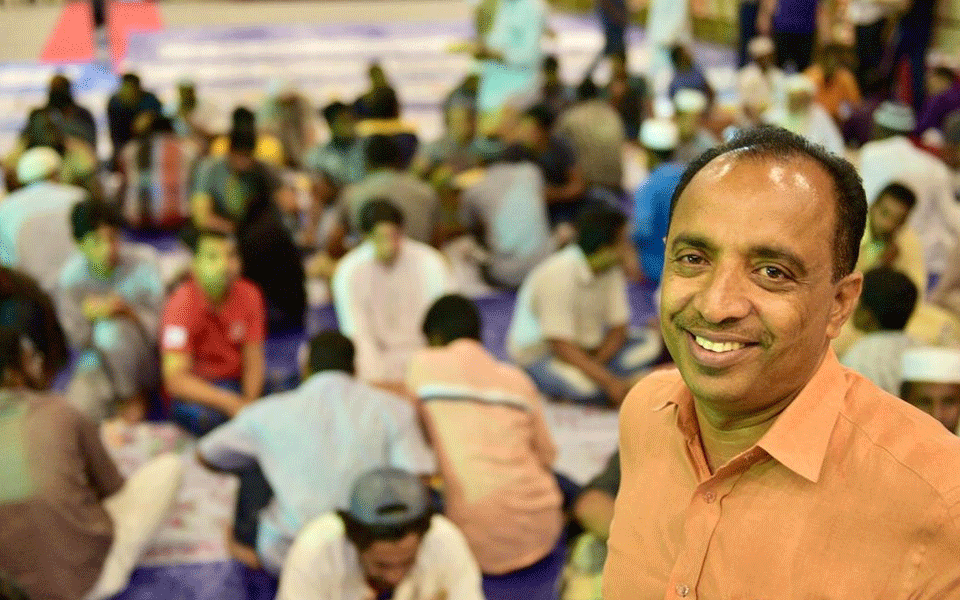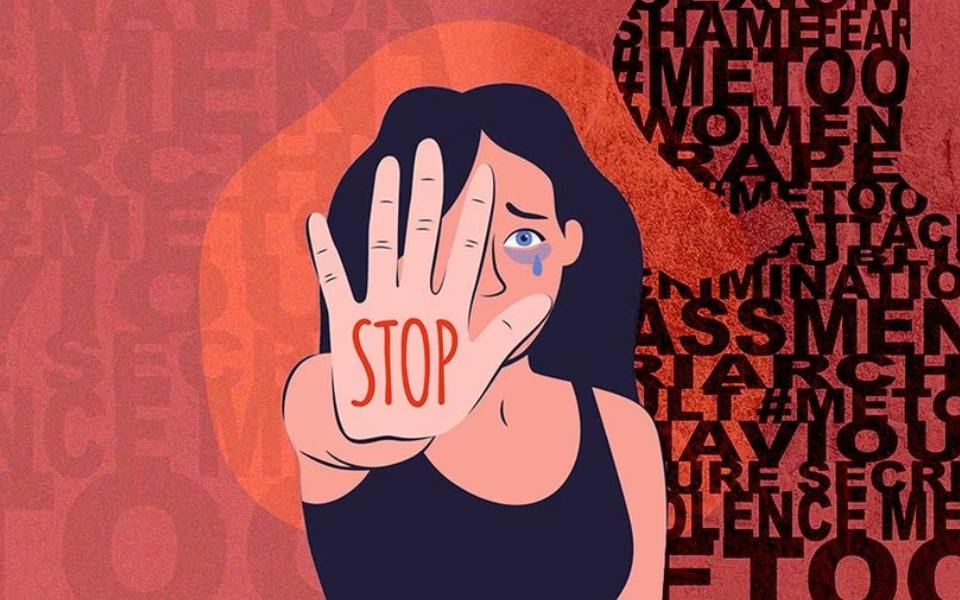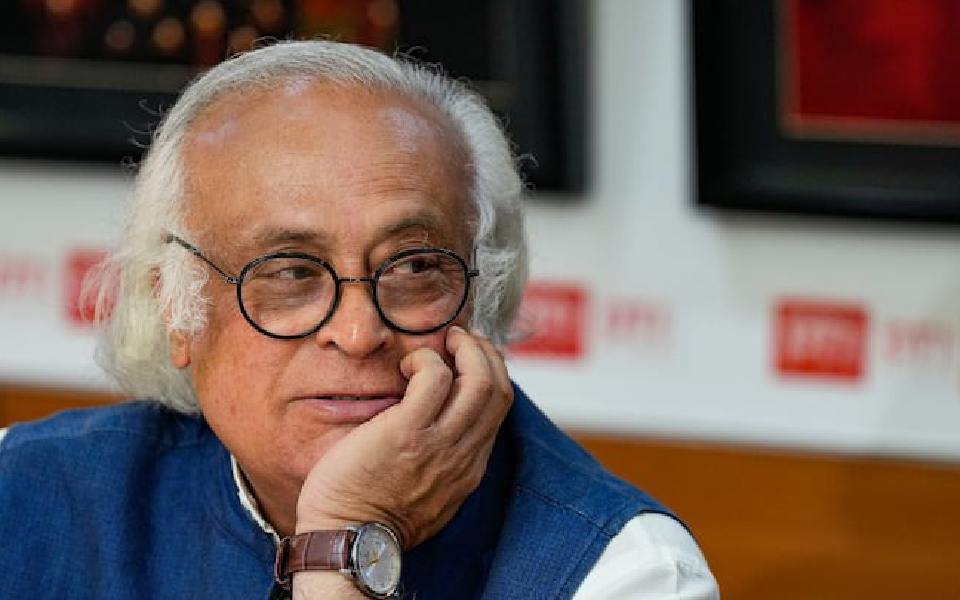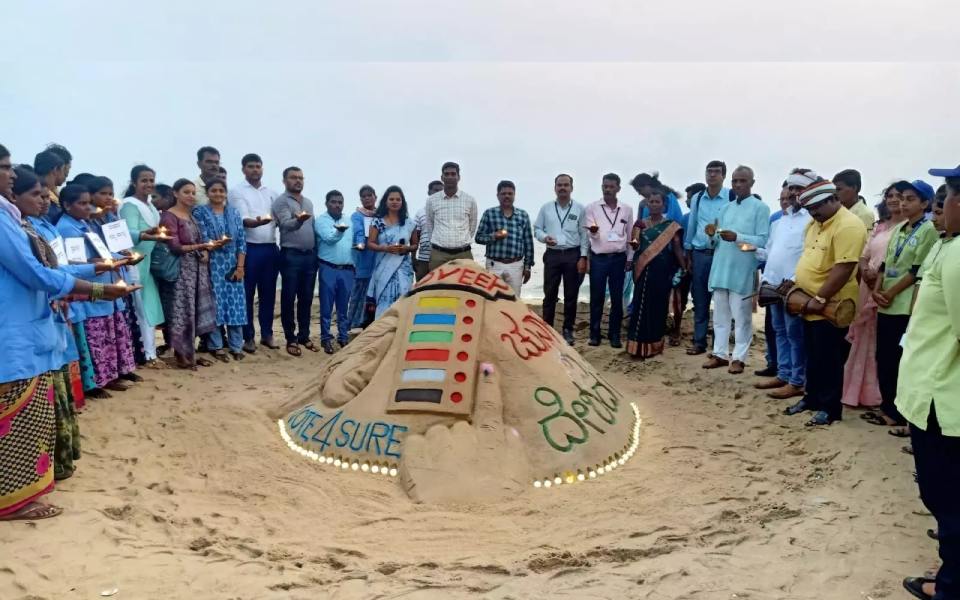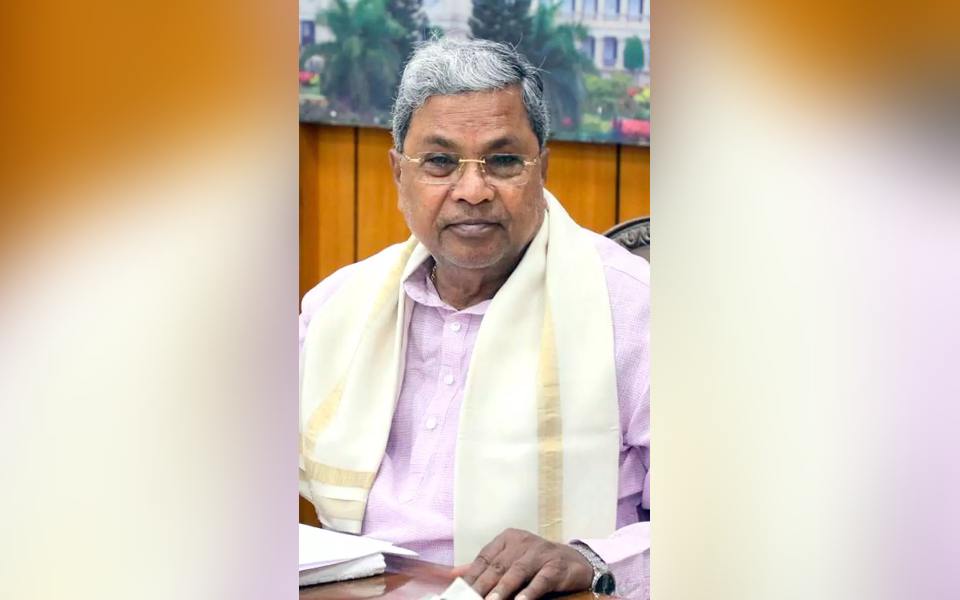Dubai: An Indian Christian businessman, who built a mosque for Muslim workers in the UAE, is serving iftar meals to nearly 800 workers during the ongoing month of Ramzan.
Saji Cheriyan, 49, who hails from Kerala's Kayamkulam, built the mosque last year for Muslim workers living in a worker accommodation that he rented out to 53 companies in Fujairah.
He built the Mariam Umm Eisa (Mary, the Mother of Jesus) mosque after he saw workers spending their earnings on taking taxis to go to the nearest mosque to offer prayers during the holy month.
Ramzan this year began on May 7.
Cheriyan, who landed in the UAE in 2003 with just a few hundred dirhams, hosts iftar for about 800 people including workers and other senior employees of various companies at an air conditioned convention centre in the same complex, the Gulf News reported.
The mosque opened on the 17th night of Ramadan last year. So, I could offer iftar to the worshippers only for the remaining days. From this year, I would be doing it every day, he was quoted as saying by the newspaper.
The iftar meal includes dates, fresh fruits, snacks, juice, water and biryani. I have made arrangements to offer different types of biryani so that they don't get bored eating the same dish every iftar, he said.
Abdul Qayum, a 63-year-old Pakistani bus driver, who had iftar on Wednesday, appreciated Cheriyan's efforts.
The world needs people like him. If there are no people like him, the world will end. We are praying for him. Allah will bless him.
Vajas Abdul Wahid, an Indian employed as assistant manager with a company, said there are employees of more than 50 companies living in the area.
"Senior employees and labourers are staying in separate accommodations. But, when we come here, we are all equal. We pray and have iftar together, he added.
The mosque in the East Ville Real Estate complex in Al Hayl Industrial Area can accommodate 250 worshippers at a time. Facilities for another 700 to pray in the interlocked courtyard of the mosque, which will be shaded by the time it opens, have also been arranged.
Let the Truth be known. If you read VB and like VB, please be a VB Supporter and Help us deliver the Truth to one and all.
Prime Minister Narendra Modi invoked “Nari Shakti” during the ‘Azadi Ka Amrit Mahotsav’ in 2022. Now, Bahutva Karnataka in collaboration with Naveddu Nilladiddare Karnataka, has announced the release of "Nari Shakti: Myth and Reality", a report on the status of women under the Modi government.
"Nari Shakti: Myth and Reality" looks into the status of women in India over the past decade, focusing on five primary areas: violence against women, women’s rights, dignity and agency, economic empowerment, social empowerment, and political representation. Drawing upon credible data, including government sources, the report examines the ground realities faced by women against the backdrop of the prevailing rhetoric.
“The objective of the report is to use this information to hold those in power accountable and to inform public opinion as they make an informed choice in the ongoing general elections. Bahutva Karnataka in collaboration with Naveddu Nilladiddare Karnataka encourages all parties, in power or otherwise, to take note of these report cards and respond to the same,” the report added.
The report notes with concern that crimes against women and sexual violence have increased in the last decade. Analysing fund usage under the Nirbhaya Fund, a critical initiative for improving women’s safety, the report highlights how key schemes have been underfunded, undermining women’s security in India. The report also presents concrete instances of violence against women. Despite its public utterances regarding women’s safety, the Government has not only refrained from condemning the violence, remaining mute spectators as in the case of Manipur, but in many instances, it appears to have condoned the violence, especially when the accused have been political leaders from their own party or the victims have been from minority or Dalit communities.
“Various new laws such as UCC, Triple Talaq, Criminal Laws, Anti-conversion Laws seem to be driven by motives other than that of gender justice and and some of them are becoming tools that can be used to legitimize moral policing by vigilante groups and the State while infantilizing women and depriving them of any agency,” the report notes.
“The performance of the government on the front of “economic empowerment” too has proved to be abysmal the reports states. Analysing data related to female LFPR (Labour Force Participation Rate) and employment generating schemes like MNREGA and NRLM or schemes for financial inclusion like Pradhan Mantri Dhan Jan Yojana and Mudra it seems clear that none of these have led to any substantial degree of economic empowerment for the rural and urban power women. On the other hand it is clear that unorganized/informal work areas dominated by women like that of ASHA workers continues to be devalued and undervalued by casting it within the framework of care work, domestic work and voluntary work,” it added.
The report analyses through the gender lens some of the flagship schemes introduced as part of the BJP’s commitment to “Women’s Empowerment and Welfare”. One primary finding is that the big picture seems to be missing in several of these schemes such as SBA, PMUY, and PMMY where the metrics being quoted as signs of success do not give an honest representation of the scheme’s impact or success. Looking at CAG and other related reports the report concludes that while the media advocacy on the issues have undoubtedly yielded some favourable results in terms of improved sex ratios this seems to have fed more into image building of the government at the cost of long term structural and institutional transformations in the lives of the women who are supposed to be the “beneficiaries” of the schemes.
Finally the report examines the performance of the Government on the issue of political empowerment looking particularly at the Women’s Reservation Bill apart from the ways in which women in politics are treated. The report concludes that while the Women’s Reservation Bill might seek to guarantee women’s equal and fair representation in politics at some imaginary point in the future, what is lacking in the present is the political will to establish institutional arrangements and an inclusive climate that will enable women across communities to act independently without depending on tokenism and patriarchal patronage.
The speakers who responded to the report included: Diana Kh, a concerned activist from Manipur who spoke about what is happening to women from diverse communities in the context of an ongoing conflict and the Centre’s frightening indifference, Nasreen Mithai from the BMMA spoke about how the ruling party projected itself as the savior of Muslim women appropriating their efforts to bring about transformation from within even while it continued to target Muslim women and men; Vijayakumari a former ASHA worker spoke about the immense contribution of the “voluntary” health workers to rural health and especially during the COVID crisis who still continue to struggle for basic education and health for their own children K.S. Vimala from AIDWA, India who spoke about the history of women’s struggle for political empowerment and how they felt totally totally short changed by the Ruling party on the women’s reservation Bill that is problematic at so many different levels.

